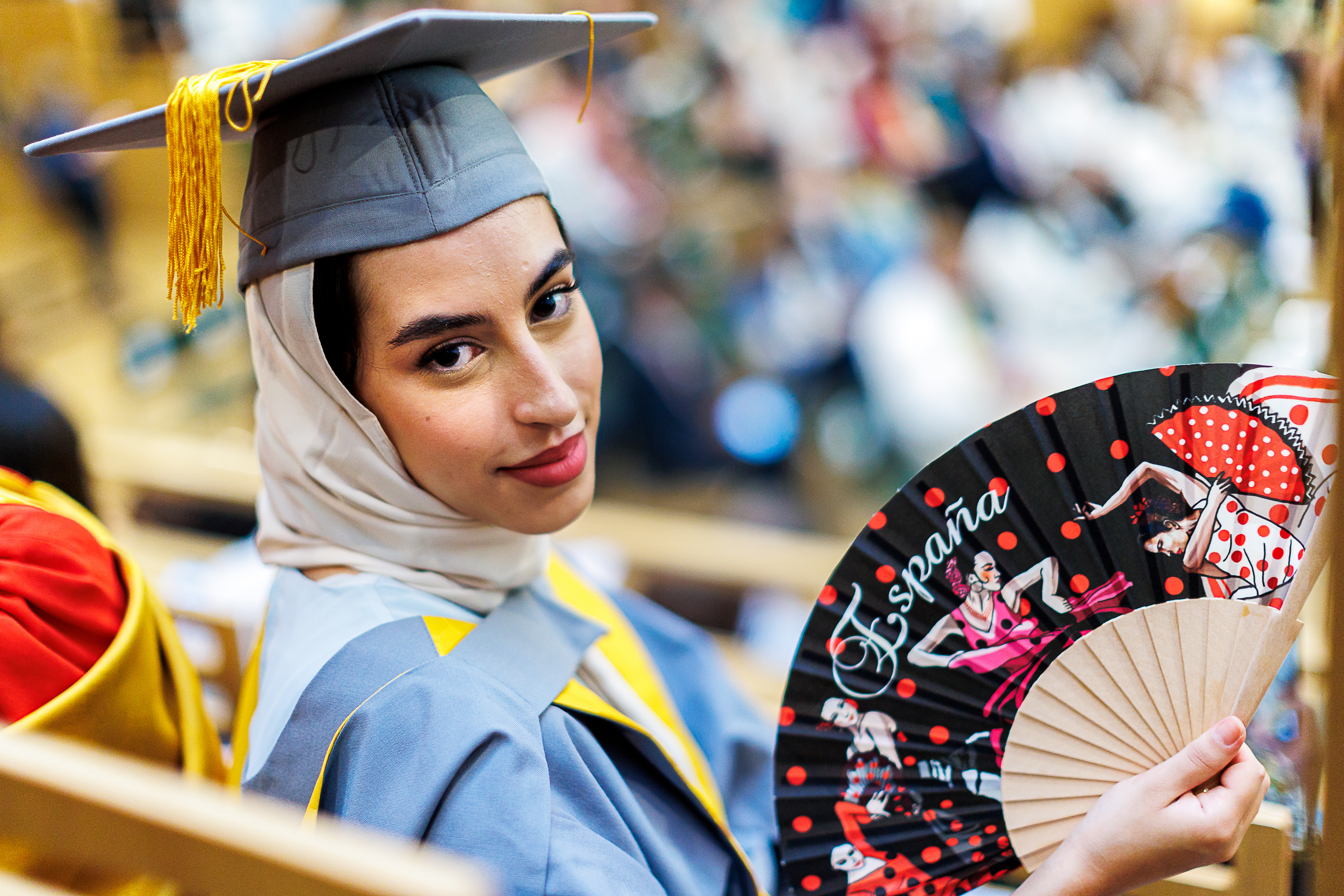SOAS is the ideal setting for a programme like this, because of its global perspective in studying the intersecting dynamics of religion, politics and society. SOAS’s MA Religion, Politics and Society provides an intellectually uplifting understanding of a wide range of religious discourses and their respective relationships with thematic debates about secularism, violence, community empowerment, and modernity.
Unlike other religion-focused Master’s programmes in the UK university sector, the MA Religion, Politics and Society at SOAS challenges how religion has been devised in socio-political circles. The programme is built around challenging Eurocentric approaches to religion, secularism, and the public sphere. The programme does so through articulating a decolonial approach to theories and methodologies in religious studies. By studying in detail majority and minority religions of Asia, Africa, the Middle East and their diasporas, and applying such knowledge to contemporary issues, students on this MA are uniquely equipped to make informed intellectual interventions in debates at the intersection of religion, spirituality, gender, violence, and geopolitics.
The academic staff teaching on MA Religion, Politics and Society are world-renowned experts in their fields of study, and the programme is further nourished by the work of the Shapoorji Pallonji Institute of Zoroastrian Studies, the Centre of Buddhist Studies, the Centre of Jaina Studies, the Centre of Islamic Studies, the Centre for Jewish Studies, and the Centre of World Christianity. The programme teaching staff’s research has helped place the School of History, Religions, and Philosophies third in the UK for research outputs and seventh overall in the Religious Studies research rankings (Research Excellence Framework 2021).
“The professors are not only at the top of their fields in terms of academic excellence, but also at the cutting edge of the topics they write and teach about,” says student Elliott Ryan.

MA History and MA Religion, Politics and Society cover the rich histories, systems of religious belief, and philosophical traditions of Africa, Asia, and the Middle East. Source: SOAS University of London
Ryan chose the programme, as it’s one of the few in the world that examines the dynamic between queer politics and broader political subjects. “I came here to discuss concepts like homonationalism and take classes such as ‘Queer Politics’. It is thrilling to conduct this work, especially while studying religion,” he says. “Moreover, SOAS is one of the few academic institutions in the world to have multiple classes which focus solely on Palestine. They are fantastic and highly recommended.”
The impact of this MA programme’s meticulous investigation of key aspects of the relationship between religion and politics has been profound for Ryan. “We cover the concepts of secularism, the public sphere, modernity, colonialism, nationalism, terrorism, conflict resolution, discrimination, and free speech. Notable thinkers whose work we study include José Casanova, Jürgen Habermas, Charles Taylor, John Rawls, Saba Mahmood, Talal Asad, Monica Duffy Toft, and Jasbir Puar”, he says. “The class has provided an immense education that I will be drawing upon for the rest of my career.”

SOAS experts look at religion first and foremost from a non-Western angle. Source: SOAS University of London
Graduates of MA Religion, Politics, and Society will not only gain subject-specific knowledge but also cultivate a range of academic and professional skills that enhance their employability. Such skills include advanced analytical and research skills, academic writing to the highest standards, fieldwork and archival research techniques, oral presentation, articulating and defending independent scholarly interventions on thematic debates, and many more.
Having SOAS’s vast range of research resources on campus works especially well in helping students achieve these outcomes. The SOAS Library is part of Research Libraries UK, a consortium of the UK’s national research libraries. Students have access to 1.3 million volumes, periodicals and audio-visual materials in 400 rare and endangered languages, all on the study of Asia, Africa and the Middle East.
To complement this unique intellectual site, the SOAS Archives and Special Collections is one of the UK’s leading collections of archives, manuscripts, and rare books on Asia, Africa and the Middle East. Over three kilometers of archival material, as well as 60,000 rare books, and manuscripts in 140 languages are available to students and researchers.
SOAS’s central London position makes it easy for students to step out and enjoy the rich cultural life the city has to offer. Moreover, given SOAS’s location in Bloomsbury, students can readily access other world-leading libraries and archival collections such as the British Library, the National Archives, the British Museum, and the British Film Institute.
The campus is just as dynamic. There are many student clubs dedicated to all kinds of interests, ranging from queer rights to films to Taylor Swift. “The overall campus culture can be described as convivial and critically-minded,” says Ryan. “The people working within the school are knowledgeable, curious, and excited about their fields of study. It has been a joy to get to know them over the course of my studies.”
SOAS’s unique expertise and facilities have played key roles in its many success stories. Faculty and staff often discuss future career plans, offer advice and send emails about job opportunities. With their help and guidance, graduates have gone on to excel in a variety of fields, including academia, the civil service, NGOs, international development, and consulting. “I would absolutely consider my programme to be a return on my investment,” says Ryan. “It is comprehensive and well-rounded.”
Follow SOAS University of London on Facebook, Instagram, LinkedIn, X, and YouTube










